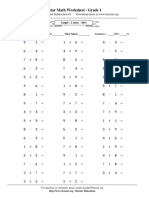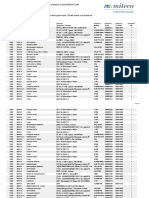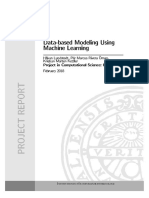92% found this document useful (12 votes)
48K views11 pagesArithmetic Expressions Class7 MCQ Worksheet Set 02
The document is a Multiple Choice Worksheet for Class VII Mathematics focusing on arithmetic expressions. It contains 50 questions covering various topics such as operations, properties, and evaluation of expressions. An answer key is provided at the end for reference.
Uploaded by
adityakvgb2010Copyright
© © All Rights Reserved
We take content rights seriously. If you suspect this is your content, claim it here.
Available Formats
Download as DOCX, PDF, TXT or read online on Scribd
92% found this document useful (12 votes)
48K views11 pagesArithmetic Expressions Class7 MCQ Worksheet Set 02
The document is a Multiple Choice Worksheet for Class VII Mathematics focusing on arithmetic expressions. It contains 50 questions covering various topics such as operations, properties, and evaluation of expressions. An answer key is provided at the end for reference.
Uploaded by
adityakvgb2010Copyright
© © All Rights Reserved
We take content rights seriously. If you suspect this is your content, claim it here.
Available Formats
Download as DOCX, PDF, TXT or read online on Scribd
/ 11























































































































